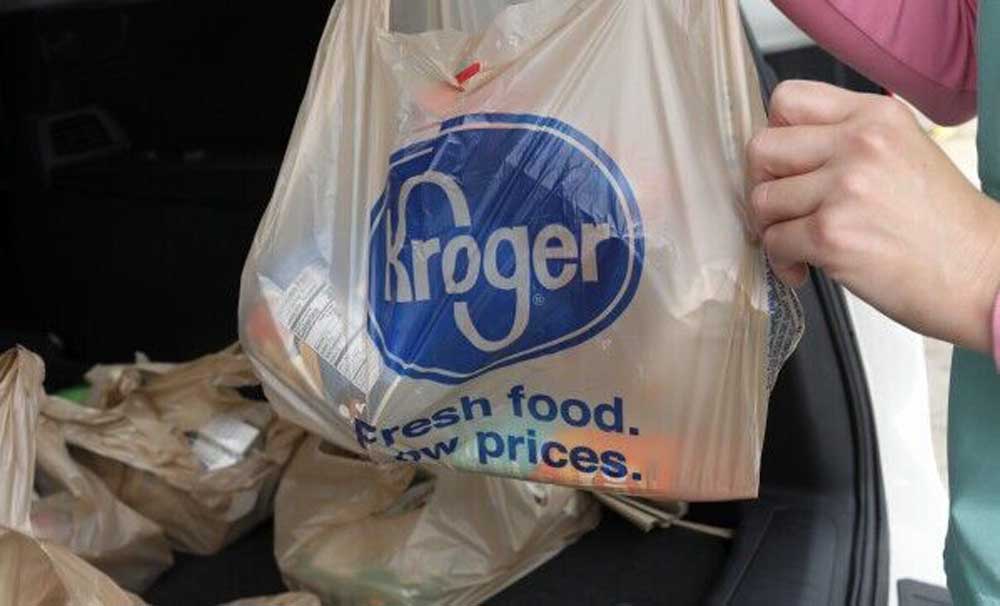Kroger, Albertsons CEOs make case on merger
Published 6:09 pm Thursday, September 5, 2024

- Kroger and Albertsons want to merge.
The chief executives of Kroger and Albertsons pressed the case in a Portland federal courtroom on Wednesday that the two grocers should be allowed to merge, testifying the $24.6 billion deal would mean lower prices for customers.
Trending
And, Kroger CEO Rodney McMullen said, it would bring more corporate jobs to Portland. McMullen said a much larger Kroger would move some general merchandise purchasing work from its headquarters in Cincinnati to Portland after absorbing Albertsons, which also owns Safeway.
Fred Meyer, which is owned by Kroger, was among the first grocery chains to embrace one-stop-shopping that included general merchandise like apparel and homeware. Kroger bought Fred Meyer in 1998.
“Kroger is so much better today because of Fred Meyer,” McMullen said.
Trending
Kroger announced plans nearly two years ago to buy Albertsons, its next largest competitor. State and federal regulators have asked U.S. District Court Judge Adrienne Nelson to block the merger, arguing it would harm competition and likely result in higher prices for customers and lower pay for grocery workers.
McMullen and Albertsons CEO Vivek Sankaran both testified on Wednesday, hoping to rebut the argument and win Nelson’s approval.
“The values of the two companies are very similar and we’ve been very impressed with what Sankaran has built,” McMullen said. “Albertsons does some things better than Kroger that we can always learn from.”
McMullen said the grocery business has changed dramatically in the 46 years he’s worked at Kroger. When he started, he said, the company’s biggest competitor was the grocer A&P, which folded in 2015 after a long decline.
Today, he said, the company’s top three competitors are Walmart, Costco and Amazon.
He said the merger with Albertsons would create cost savings that would translate to lower prices.
“For the company to be successful in 10 years, we believe we need to be more aggressive on processing because lower-price retailers gain share,” McMullen said.
Attorneys for the Federal Trade Commission aimed to poke holes in the claim of lower prices. Under their questioning, McMullen acknowledged his company didn’t have complete visibility into Albertsons inner workings and financials, but said his prediction was based on Kroger’s experience with prior acquisitions.
He also acknowledged that the company’s pledge for lower prices are relative — lower than without the merger, he said, but perhaps higher than today.
The Federal Trade Commission, joined by Oregon and eight other states, spent much of the last week scrutinizing the grocers’ proposed remedy to sell off 579 stores — including 62 stores in Oregon — to a competitor, New Hampshire-based C&S Wholesale Grocers, to address any loss of competition.
Regulators have argued that the sale of stores to C&S would be inadequate to keep markets competitive.
Sankaran, Albertsons’ chief executive, testified Wednesday afternoon arguing that a merger with Kroger would better position the company in a rapidly changing grocery industry.
“Grocery is a zero-sum game in America,” he said, arguing that Albertsons’ competitors are not limited to just traditional grocery stores but “anybody who takes some of our customer dollars.”
Sankaran, a former executive at Frito-Lay and its owner, PepsiCo, testified that merging with Kroger would give the combined company the money, scale and efficiency to lower costs, savings that could be passed to consumers.
Sankaran said that he became Albertsons CEO just over five years ago and described the company as competitively behind its peers and — still today — dealing with rising costs.
He said the company is financially sound but faces difficult years ahead if the merger isn’t completed. If Albertsons continued operating on its own, he testified, it might consider layoffs, store closures or leaving some markets where it operates.
“The merger changes that,” he said. “The merger is the best path to get the scale we need.”
An Albertsons executive said Thursday that the selloff as part of the merger is a “completely different equation” from the disastrous sale of stores to the tiny Northwest grocery chain Haggen in the last decade.
The specter of that failed deal has loomed over the proposed Kroger and Albertsons merger and is a key point in the antitrust case. Regulators want to block the deal and have pointed to Haggen’s collapse as a cautionary tale.
Haggen acquired nearly 150 stores in 2014, when Albertsons bought Safeway and sold off redundant locations. Washington state-based Haggen, which had only 18 stores prior to the sale, soon collapsed under the weight of its massive expansion, filing for bankruptcy and closing or selling most of the stores. Haggen eventually sold itself to Albertsons.
If the merger moves ahead, Albertsons Chief Operating Officer Susan Morris would leave the company and join C&S to run the new nationwide grocery chain.
Morris testified Thursday the plan to divest, or sell off, hundreds of stores is fundamentally different from the Haggen debacle.
“It’s a different scenario in a different time,” she said. “I’m confident in my ability to run these stores.”
Morris said she was not personally involved the 2014 Haggen deal. In court, she attributed the failure of Haggen in part to its overnight rebannering of Albertsons and Safeway stores under its own brand. She said that was a requirement set in place by the Federal Trade Commission, the regulatory body that approved that merger — and which is now fighting Kroger and Albertsons’ combination.









